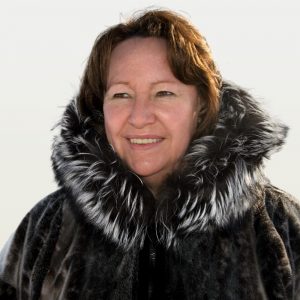Distinguished Speaker Series
The Distinguished Speaker Series brings compelling speakers to the Okanagan to share their unique perspectives on issues that affect our region, our country, and our world.
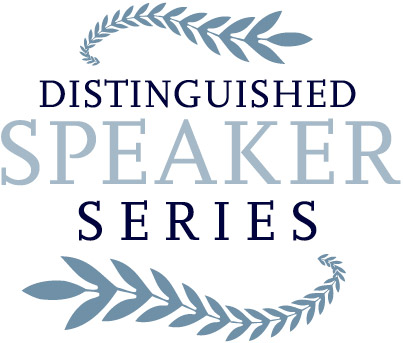
Theme
The theme of the Distinguished Speaker Series is A Civil and Sustainable Society. Established in 2006, the series receives primary support from the Irving K. Barber Endowment.
Our speakers are cultural icons and inspiring visionaries who push the boundaries of our thoughts and feelings and challenge us to look at the world in new ways.
Past Event
As part of the Irving K. Barber Faculty of Arts and Social Sciences Distinguished Speaker Series on October 15, 2024, Dr. Sarah-Patricia Breen, BC Regional Innovation Chair in Rural Economic Development at Selkirk Innovates, discussed the complexities of sustainable development in rural British Columbia and how innovation and community resilience can be harnessed to foster sustainable growth and prosperity.
Past Speakers
We are proud and humbled to count these names amongst our Distinguished Speakers.
 October 15, 2024 — Dr. Sarah-Patricia Breen
October 15, 2024 — Dr. Sarah-Patricia Breen
Re-thinking Rural: Complexity, Innovation and the Future(s) of Rural British Columbia
Dr. Sarah-Patricia Breen shared her views on the complexities of sustainable development in rural British Columbia and how BC communities can thrive amidst a changing economic and physical climate.
 October 12, 2023— Dr. Melissa Lem
October 12, 2023— Dr. Melissa Lem
PaRx: A Prescription for Personal and Planetary Health
Dr. Melissa Lem discussed highlights from the wide-ranging body of knowledge on nature and health, presented an overview of PaRx, including its significant national and international influence, and revealed how prescribing nature can improve both patient and planetary health.
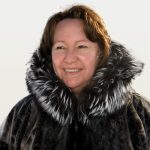 October 28, 2021 — Sheila Watts-Cloutier
October 28, 2021 — Sheila Watts-Cloutier
Reimagining a New Way Forward with Intention
Sheila Watt-Cloutier discussed the interconnectedness of the environment, economy, foreign policy, health and human rights and how it impacts the future of our planet.
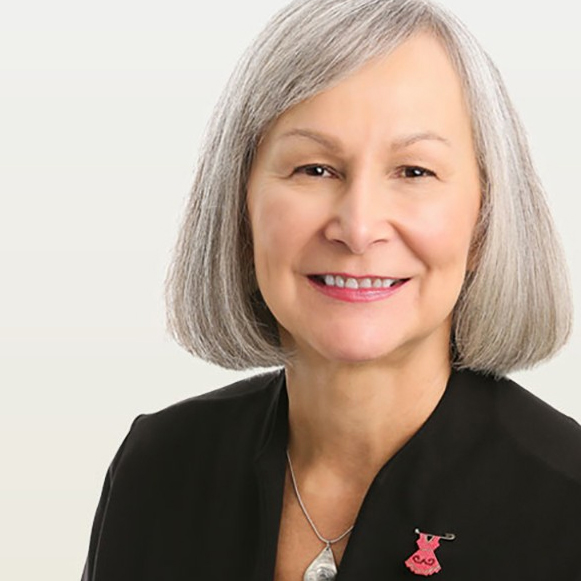 October 28, 2021 — Marion Buller
October 28, 2021 — Marion Buller
Redefining Community
Former Chief Commissioner of Canada’s National Inquiry into Missing and Murdered Indigenous Women and Girls Marion Buller offered a thought-provoking look at the importance of partnerships, relationships, and building trust.
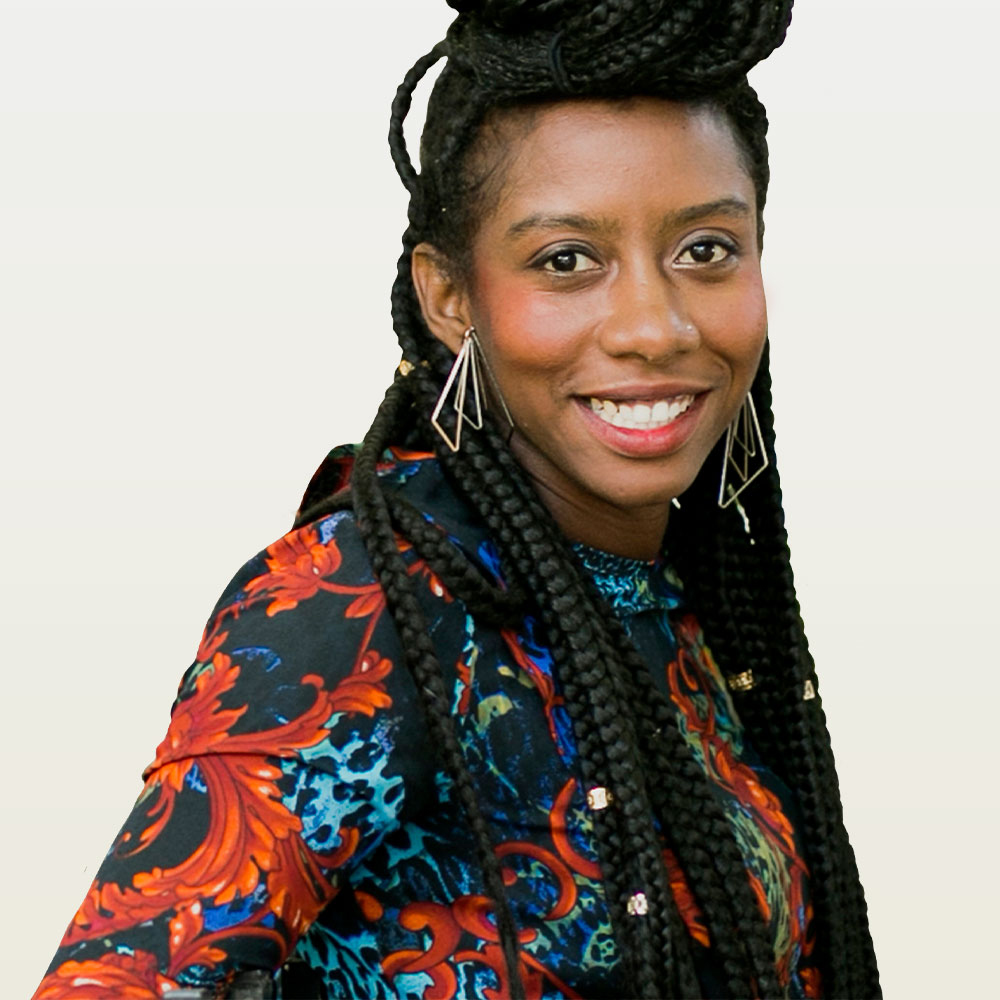 November 17, 2020 — Dr. Hadiya Roderique
November 17, 2020 — Dr. Hadiya Roderique
Facing up to Racism at Work
Dr. Hadiya Roderique joined us for a timely discussion about racial inequities in the workplace.
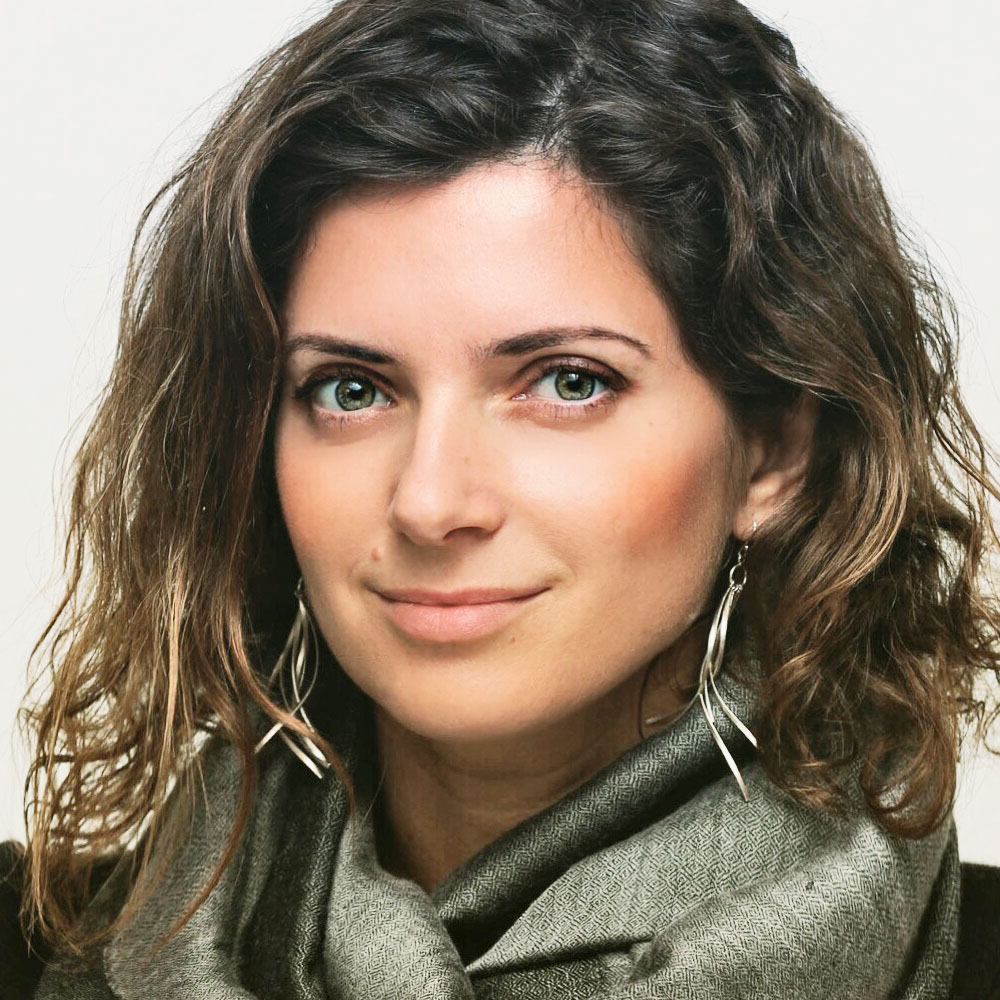 January 29, 2020 — Lera Boroditsky
January 29, 2020 — Lera Boroditsky
Language and the way we think
Celebrated cognitive scientist Lera Boroditsky taught us that language, like intelligence, is a living thing that we can hone and change to suit our needs.
Watch Full Talk
Watch Abridged Talk
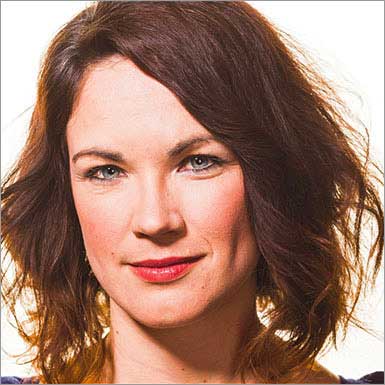 October 1, 2019 — Lucianne Walkowicz
October 1, 2019 — Lucianne Walkowicz
Planets and Stars: New Worlds and New Life
Lucianne Walkowicz shed a light on how the thousands of newly discovered planetary systems might lead to the discovery of life beyond Earth, and how the future of our world depends on our connection to science.
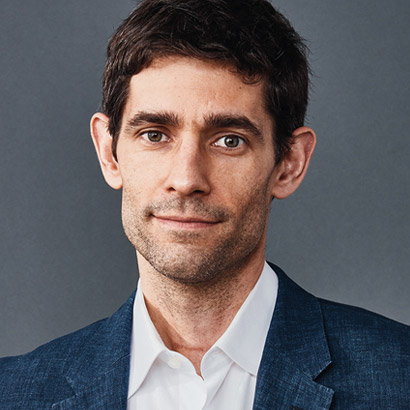 February 25, 2019 — Nicholas Thompson
February 25, 2019 — Nicholas Thompson
The Wired Future
In this talk, The Wired Future, Nicholas Thompson champions the ways technology enhances our lives and makes our world a better place.
 October 12, 2018 — Cornel West
October 12, 2018 — Cornel West
Race Matters
Cornel West, a champion for racial justice, brought his talk and best-selling book, Race Matters to Kelowna, B.C. where he discussed the intersections between race, democracy and justice.
 February 13, 2018 — Chantal Hébert
February 13, 2018 — Chantal Hébert
Politics and Democracy in the Fake News Era
Award-winning Canadian journalist Chantal Hébert tackles the issue of fake news and how it affects today’s politics and democracy itself.
 October 5, 2017 — Ed Diener
October 5, 2017 — Ed Diener
The Science of Happiness: What We Know and How We Can Use it to Improve Society
Ed Diener, psychology professor at the University of Virginia, University of Utah and senior scientist of the Gallup Organization, discusses the science of subjective well-being. In other words, the science of happiness.
 January 17, 2017 — Temple Grandin
January 17, 2017 — Temple Grandin
Different Kinds of Minds Contribute to Society
Temple Grandin is a professor of animal science at Colorado State University. Through ground-breaking research and the lens of her own autism, Professor Grandin provides insight and understanding about different types of thinkers, their skills and how they can complement each other.
 February 18, 2016 — Naomi Klein
February 18, 2016 — Naomi Klein
This Changes Everything: Capitalism vs. the Climate
Thought-provoking, enigmatic and undeniably controversial, New York Times bestselling author Naomi Klein wants us to forget everything we know about global warming. In her words, the problem isn’t carbon, but capitalism, and transforming our very economic model is the only chance we have to tackle the most profound threat humanity has ever faced.
 September 20, 2016 — Timothy Caulfield
September 20, 2016 — Timothy Caulfield
Is Gwyneth Paltrow Wrong About Everything?: When Celebrity Culture And Science Clash
Timothy Caulfield is a Canada Research Chair in Health Law and Policy and a professor in the Faculty of Law and the School of Public Health at the University of Alberta. In this fun and provocative presentation, Caulfield examines what science tells us about the influence of popular culture. He also debunks common health myths and provides practical, evidence-based, recommendations relevant to both individuals seeking to live a healthy lifestyle and healthcare professionals.
 February 25, 2015 — Jay Ingram
February 25, 2015 — Jay Ingram
The Science of Alzheimer’s
Iconic broadcaster Jay Ingram has hosted both the premier radio science program in Canada, CBC’s Quirks and Quarks, and its TV counterpart, Discovery Channel Canada’s Daily Planet. In 2010, Ingram was appointed as a member to the Order of Canada for a lifetime of service in science communication. Over two nights in Kelowna, Ingram addresses the many questions we still don’t have answer for regarding the debilitating Alzheimer’s disease.
 September 30, 2015 — Wab Kinew
September 30, 2015 — Wab Kinew
The Reason You Walk
Kinew is the Associate Vice-President for Indigenous Relations at the University of Winnipeg and a correspondent with Aljazeera America. In this talk, Kinew shares his own struggles in his twenties to find the right path, eventually giving up a self-destructive lifestyle to passionately pursue music and martial arts. From his unique vantage point, he offers an inside view of what it means to be an educated aboriginal living in a country that is just beginning to wake up to its aboriginal history and living presence.
 October 22, 2014 — Edward Burtynsky
October 22, 2014 — Edward Burtynsky
The Landscape of Human Systems
Edward Burtynsky is one of Canada’s most respected photographers with work included in the collections of over sixty major museums around the world, including the National Gallery of Canada, the Museum of Modern Art, the Guggenheim Museum in New York, the Reina Sofia Museum in Madrid, and the Los Angeles County Museum of Art in California. In this speaker series event, Burtynsky discusses the intersection of his image-making process as an artist while exploring modern civilization’s troubling relationship with nature.
 April 7, 2014, 2014 — Birute Galdikas
April 7, 2014, 2014 — Birute Galdikas
Curious Orange?
A professor in the archaeology department at Simon Fraser University, Biruté Mary Galdikas has been working in Central Kalimantan (Indonesian Borneo), studying and protecting wild orangutans and forests since 1971. In this talk, Galdikas takes the audience to the lush rainforests of Borneo, sharing personal stories from her four decades in the jungle studying and working closely with orangutans.
 October 7, 2013 — Colonel Chris Hadfield
October 7, 2013 — Colonel Chris Hadfield
The Sky is Not the Limit.
Colonel Chris Hadfield is an astronaut and former Commander of the International Space Station. Since blasting off from Kazakhstan in December 2012, Hadfield has become a worldwide sensation, harnessing the power of social media to make outer space accessible to millions and infusing a sense of wonder into the collective consciousness not felt since man first walked on the moon. In this passionate and illuminating talk, Hadfield imparts the useful and practical lessons he’s learned throughout his remarkable career in the fields of leadership, teamwork, collaboration, science and technology, and motivates audiences to achieve dreams higher than the clouds.
 January 22, 2013 — James Burke
January 22, 2013 — James Burke
What kind of education for what kind of future?
In 1965 James Burke began work with BBC-TV on Tomorrow’s World and went on to become the BBC’s chief reporter on the Apollo Moon missions. For over forty years he has produced, directed, written and presented award-winning television series on the BBC, PBS, Discovery Channel and The Learning Channel. In this talk, Burke explores the intriguing possibility that the future is no longer what it used to be.
 October 3, 2012 — Wade Davis
October 3, 2012 — Wade Davis
The Wayfinders
Wade Davis is a well-published scholar and Explorer-in-Residence at the National Geographic Society. Named by the society as one of the Explorers for the Millennium, he has been described as “a rare combination of scientist, scholar, poet, and passionate defender of all of life’s diversity.” In this talk, Davis argues that there is a fire burning over the Earth, taking with it plants and animals, ancient skills and visionary wisdom. Quelling this flame, and rediscovering a new appreciation for the diversity of the human spirit as expressed by culture, is among the central challenges of our times.
 March 27, 2012 — James Maskalyk
March 27, 2012 — James Maskalyk
Humanitarian Physician and Author of Six Months in Sudan
Emergency room physician James Maskalyk’s desire to heal led him to Sudan, Africa, in 2007, where he stayed for six months as Médecins Sans Frontières’ (Doctors Without Borders/MSF) newest medical doctor in the field. Maskalyk speaks in Kelowna about his experience as a young doctor serving in the war-torn town of Abyei in Sudan.
 January 26, 2012 — Jessica Jackley
January 26, 2012 — Jessica Jackley
Social Entrepreneurship: Challenging Common Business Practices
Bright, energetic, and unapologetically optimistic about the power of business to change the world, Jessica Jackley is a founder and former Chief Marketing Officer of Kiva, the world’s first peer-to-peer microlending website. Kiva lets users lend as little as $25 to poor entrepreneurs around the world, providing affordable capital for them to start or expand microenterprises. Drawing on her eclectic background — she studied art and philosophy before earning an MBA — Jackley discusses a wide range of timely issues, from economic development to women’s empowerment to Web 2.0.
 October 13, 2011— Dan Buettner
October 13, 2011— Dan Buettner
Blue Zones: Secrets of a Long Life
Dan Buettner is an internationally recognized researcher, explorer, and New York Times bestselling author and National Geographic Fellow. He founded Blue Zones, a company that puts the world’s best practices in longevity and well-being to work in people’s lives. In his speaker series talk, Buettner debunks the most common myths and offers a science-backed blue print for the average American to live another 12 years.
 February 21, 2011— Senator Sharon Carstairs, PC
February 21, 2011— Senator Sharon Carstairs, PC
Seizing the Opportunity of an Aging Population Sharon Carstairs is a teacher, an author, a former MLA in Manitoba, a Senator and the Leader of the Government in the Senate. She was the first woman to lead the Official Opposition in a Canadian Legislative Assembly and the first Deputy Leader of the Government in the Senate. In 2001, Carstairs was given a special responsibility by then Prime Minister Jean Chrétien for palliative care in Canada. She chaired the Senate of Canada’s Special Senate Committee on Aging, issuing a final report in 2009. On feb. 21, 2011, she stopped by Kelowna to talk about her findings.
 January 13, 2011 — Amitiva Kumar
January 13, 2011 — Amitiva Kumar
A Foreigner Carrying in the Crook of His Arm a Tiny Bomb
Amitava Kumar is a writer, journalist and professor of English at Vassar Collegeborn. He grew up in the town of Patna in northeaster India, famous for its corruption, crushing poverty and delicious mangoes. Drawing from his most recent book, Kumar speaks about “September 11 and its aftermath; the art and literature of terror; war and Islamophobia.
 October 26, 2010— Greg Wells
October 26, 2010— Greg Wells
Superbodies: Living a World-Class Life
Greg Wells is a scientist specializing in extreme human physiology. He’s the face millions tuned in to during the Vancouver 2010 Olympics with his CTV coverage of the Gemini Award nominated Superbodies segments, where he delved into the workings of the human mind and body in extreme situations. Drawing on his experiences at the Olympic Games and from his own adventures cycling 8,000 kms across Africa, running marathons 600 km North of the Arctic circle, and recovering from a broken neck and neurosurgery, Wells highlights the best-practices that everyone can use to achieve their dreams.
 September 10, 2010 — Richard Florida
September 10, 2010 — Richard Florida
Who’s your city?
Richard Florida is one of the world’s leading public intellectuals on economic competitiveness, demographic trends, and cultural and technological innovation. Taking up the themes of his two most recent books, Who’s Your City? and The Great Reset, in his Kelowna presentation Florida examines how the creative economy is making where to live the most important decision of your life, and how new ways of living and working will drive post-crash prosperity.
 January 14, 2010 — Kevin Sites
January 14, 2010 — Kevin Sites
In the Hot Zone — One Man, One Year, 20 Wars
After years of working for ABC, CNN and NBC, Kevin Sites became Yahoo!’s first news correspondent, covering every major conflict in the world from 2005 to 2006. He is a recipient of the Daniel Pearl Award, and a 2007 Webby for Best News/Documentary/Public Affairs. A natural storyteller and former university lecturer, Sites shares his unique yet palpable anecdotes of people and places from war-torn regions, bringing us face-to-face with the harsh complexities of truth and a bottomless reserve of empathy and compassion.
 October 26, 2009 — Phil Fontaine
October 26, 2009 — Phil Fontaine
Imagine with Me: Canada’s Future
Former National Chief Phil Fontaine is a dedicated and highly respected leader in Canada. He has been instrumental in facilitating change and advancement for First Nations people from the time he was first elected to public office as Chief, at the young age of 28.
 January 27, 2009 — Chief Justice Beverley McLachlin
January 27, 2009 — Chief Justice Beverley McLachlin
Access to Justice
The Rt. Honourable Madam Chief Justice Beverley McLachlin, P.C., practiced law in Edmonton, Fort St. John and Vancouver from 1968 to 1971. She taught at the Faculty of Law of the University of British Columbia from 1975 to 1981. In 1988 she became Chief Justice of the Supreme Court of British Columbia, where she served until her appointment to the Supreme Court of Canada in 1989. On January 7, 2000, she became Chief Justice of Canada. In her talk, McLachlin talks about removing barriers in the justice system to make it more accessible to everyone.
 Jan 22, 2009 — Lloyd Axworthy
Jan 22, 2009 — Lloyd Axworthy
A Canadian Conversation with the new U.S. president
Lloyd Axworthy is president and vice chancellor of the University of Winnipeg. Previously, he was director and CEO of the Liu Institute for Global Issues at UBC. Axworthy served six years in the Manitoba Legislative Assembly and 21 years in the federal Parliament. He has held several cabinet positions, notably Minister of Foreign Affairs, Minister of Employment and Immigration, and Minister Responsible for the Status of Women. In this talk held two days after Barack Obama’s inauguration as the 44th President of the United Stats, Axworthy shares his insights on a new era for Canada-U.S. relations.
 November 7, 2008 — Dr. James Orbinski
November 7, 2008 — Dr. James Orbinski
An Imperfect Offering: Humanitarian Action in the Twenty-first Century
After extensive field experience with Médecins Sans Frontières / Doctors Without Borders (MSF), Dr. Orbinski was elected as its’ international president from 1998 to 2001. He launched its Access to Essential Medicines Campaign in 1999. In 1999 Dr. Orbinski accepted the Nobel Peace Prize awarded to MSF for its pioneering approach to medical humanitarianism, and most especially for its approach to witnessing.
 January 28, 2008 — Dr. Samantha Nutt
January 28, 2008 — Dr. Samantha Nutt
Social Responsibility: Acting Upon our Responsibilities as Citizens
Founder and Executive Director of War Child Canada, Samantha Nutt is a medical doctor with more than 10 years of experience working in war zones. She has helped children in some of the world’s most violent flashpoints, working with War Child Canada, the United Nations and non-governmental organizations (NGOs).
 January 16, 2008 — Carl Wieman
January 16, 2008 — Carl Wieman
Science Education in the 21st Century: Using the Tools of Science to Teach Science
Dr. Carl Wieman was at the University of Colorado from 1984 to 2006 as a Distinguished Professor of Physics and Presidential Teaching Scholar. In January 2007, he joined the University of British Columbia as the Director of the Carl Wieman Science Education Initiative (CWSEI). His research has been recognized with numerous awards including the Nobel Prize in Physics in 2001. In Kelowna, he discusses the failures of traditional educational practices, even as used by “very good” teachers, and the successes of some new practices and technology that characterize this more effective approach, and how these results are highly consistent with findings from cognitive science.
October 15, 2007 — Paul Kennedy
The Need for Ideas
Paul Kennedy is a veteran broadcaster and award-winning documentarist. Since 1999, he has hosted CBC Radio’s Ideas and is well known to CBC Radio listeners as a regular replacement host on other such flagship programs as Morningside, Stereo Morning and Arts National. In Kelowna, Kennedy talked about how ideas are essential for the preservation of civilization — and even life — as we know it.
 September 12, 2007 — Gwynne Dyer
September 12, 2007 — Gwynne Dyer
After Iraq
Gwynne Dyer studied at universities in Canada, the United States and the United Kingdom, receiving his PhD in military and Middle Eastern history from the University of London. Dyer served in the Canadian, American and British navies. He taught military history and war studies for two years at the Canadian Forces College in Toronto and for four years at the Royal Military Academy in Sandhurst. Dyer’s presentation examines the interplay of critical global issues that include population growth, a U.S. withdrawal from Iraq, the world’s reliance on non-renewable energy resources, climate change, and the large-scale human conflict that may arise as a result of resource shortages.
 March 22, 2007 — David Schindler
March 22, 2007 — David Schindler
Western Canada’s Freshwater Supply in the 21st Century
Dr. Schindler holds the Killam Memorial Chair and is Professor of Ecology at the University of Alberta, Edmonton. From 1968 to 1989, he founded and directed the Experimental Lakes Project near Kenora, Ontario, conducting experiments on whole ecosystems to directly test the effects of nutrient inputs, acid rain, climate change and other human insults. His work on eutrophication and acid rain has been widely used in formulating ecological management policy in Canada, the U.S. and in Europe.
 2006 — Ronald Wright
2006 — Ronald Wright
The Traps of Progress
Subscribe for email updates
Receive email updates about upcoming Distinguished Speaker Series events. Subscribe now.
Sponsors
This series is made possible through the generous support of the Irving K. Barber Endowment.


